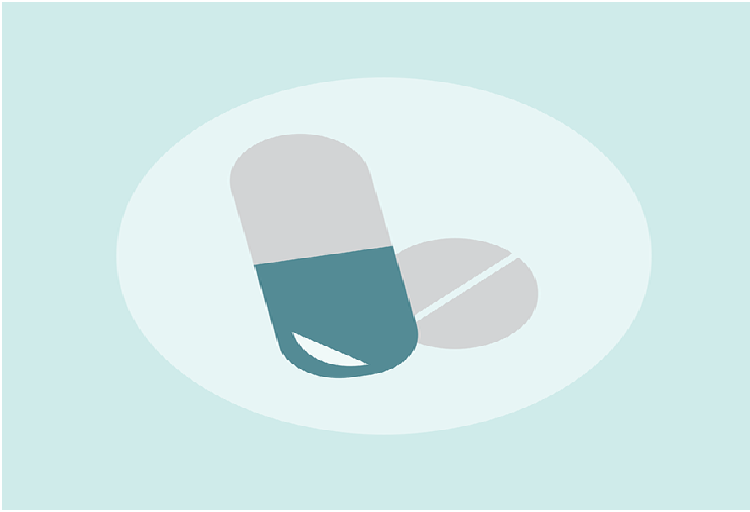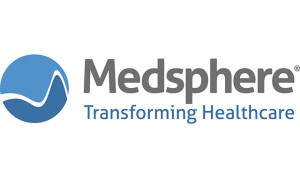By Thomas Grove , Phoenix Health Systems, Division of Medsphere Systems
Like you, I am a healthcare consumer. Not unlike many healthcare consumers, I am angry.
However, I am not angry at my doctor, my insurance company, the government, or with “the computer.” I’m exasperated with the so-called professionals who installed the computer system in my doctor’s office. Unfortunately, the incident I’m about to describe isn’t one-off. American healthcare’s reliance on information technology is an unprecedented and relatively recent change. To make sure that this change is not only “meaningful” but transformative, means it must be done right. Sometimes, more often than necessary, it isn’t. Healthcare IT professionals are frequently at fault, and I’d like to recommend how we can do better.
A few weeks ago, I called my physician’s office and requested that it send a drug refill to my mail order pharmacy, because I would run out before my next office visit. Soon the office called to say that my doctor had sent the order. Great! I would have my prescription in a couple of weeks. Worry free, I could continue my road warrior job traveling to hospitals to help them make sense of the rapidly changing health IT environment. Or so I thought.
By the day before Thanksgiving, I still had no drugs. I was about to run out. I went to my pharmacy’s web site and learned — ouch! — that it had never received a prescription. Of course, I could not contact my doctor because of the holiday, not even by the following Monday; the staff had been given an extra day off to enjoy their leftover turkey.
“Worry free” time was over. On Tuesday, the office receptionist instantly discovered the issue. “Oh! I see what happened. We just changed computer systems and some people’s pharmacies didn’t get converted right. Your prescription went to the wrong mail order pharmacy.” After various back-and-forths, guess what else she uncovered? The new system had reverted me to a three year old address.
Now I was angry and still am. This isn’t personal. Of course, I “fixed” the immediate problem, forking over an extra $25 co-pay after a few days of heightened cholesterol. No, my anger is about professionalism, or lack thereof, in my chosen field – healthcare IT.
As an IT professional, I KNOW this should never have happened. The fault is not with the physician’s office, the mail order pharmacy, nor even with the physician’s parent health system — because converting all their physicians to an EHR platform shared with the hospital was a very good idea. No, my finger is pointing at the implementation project manager for a software vendor that I won’t name, and a project manager at a consulting firm that I can’t name either. One or more of these people bungled their jobs in at least one of these ways:
- Deciding to convert data from the old system to the new system and not doing it right.
- Neglecting to review the results of the conversion before loading it into the new system.
- Not having a valid testing/quality methodology to catch the mix-up, or more likely just not making sure it was properly applied.
- Deciding to go live before the time was right. The project manager perhaps didn’t know this, and so failed at his/her job. Worse, perhaps he knew of the conversion issues and didn’t have the backbone to call them out and fix them before a go-live that would potentially put patients’ health at risk.
IT vendors and consultants must be trusted partners in hospitals’ solutions, not perpetrators of needless mistakes and risk. This is healthcare, not Macy’s. When we get IT wrong, people can die!
Over my 20+ year career, I’ve seen a lot happen in healthcare IT. Most of it has been good, but some of it was scary, like the folly described above. When it’s scary, it’s usually also needlessly expensive. Those expenses eventually roll back to consumers. Hmmm…aren’t ever-increasing costs a central element to consumers’ anger with our healthcare system? Aside from their frequent frustration with scenarios such as my Thanksgiving experience?
Healthcare IT professionals can do better and should. Those who are passionate about their work care whether prescriptions get filled, diagnoses are correctly recorded, and the right healthcare is delivered. They do not see themselves as technicians, but as accountable care-delivery partners with physicians and clinicians. But many consultants and project managers don’t go that additional mile or two of accountability — one that should never be considered “extra.” Let me share some principles I’ve learned that everyone in healthcare IT can benefit from if they really want to contribute to better US healthcare.
- In healthcare IT, be careful with the Pareto principle. There’s not a project I’ve been on where design decisions about how to get an 80% bang for our 20% buck weren’t considered. This happens, especially in workflow design, where the healthcare environment is so complex you just can’t get to the 100% level. But you cannot take the same shortcuts with data. If the healthcare data isn’t right, bad things happen:
- Physicians rely on inaccurate (and missing) data to make clinical decisions that can injure or kill. There are many reasons for morbidity and mortality in healthcare. Information technology shouldn’t be one of them.
- Incorrect bills that exasperate patients and payers get submitted, which take time and money to fix. If too many of those bad bills get to CMS, it won’t be heaven that breaks loose.
- Items get missed. For example, charges go AWOL, causing the hospital not to be reimbursed. CFOs want to know why their revenue has dropped…CEOs and Boards want to know a lot more.
- Eliminate unwarranted data conversion costs. Hospitals often spend ten to 100 times what it would have cost to get it right the first time. I’m working with a hospital now that experienced a flawed patient records conversion from their previous billing system. This blunder has required the hospital to maintain their previous billing platform for six years, just to have a place to look up that data. They’ve paid hardware and software costs, spent immeasurable IT hours just keeping the old platform running, and wasted easily as many billing hours sorting out master patient index issues. Maintenance of this legacy mess is not sustainable. Doing the right thing now – switching to a new platform and converting exactly no patient data is going to be painful, especially when reregistering patients for the first time. The hospital is wisely making this move, after immense unnecessary spending.
- Watch for what you can’t see. It’s as important as what you can, but a lot harder to verify. It’s much easier to find a duplicate charge — even the payers will be nice enough to point these out – than a missing charge. Once you find the latter, you have to go looking for others like it, and you’re likely to discover far more than you feared. A while back, during a random quality audit, my team discovered one account that appeared to be incorrectly adjusted. While the account was in the right queue to be worked, no one had noticed the problem because the payer’s incorrect adjustment put the account at zero balance. Because work queries were set to ignore $0 balance accounts, this issue would not have been found were it not for the random audit.
- Outliers are the most critical data. That account I mentioned previously? Once we looked further, we found almost 7,000 accounts over two years that had the same issue. We could have fixed about 90% of them with a query. It was the 10% outliers that hurt. The billing team had to touch all of the affected accounts to correct the write-offs, and refund several hundred patients who were mistakenly billed a balance after the primary payer’s error rolled to the secondary payer. Assumptions that all the cases fit a certain pattern lead to dangerous shortcuts.
- It doesn’t matter how good your systems are if your processes are poor. I can’t count the times I’ve been called to fix a system issue that actually was a data issue, and that the precipitating problem was the process set up to maintain the data needed by the system. Some examples:
- Security issues where employees who were terminated had their accounts removed, but physician accounts were left active, because physicians weren’t “employees.”
- Hours spent researching why something isn’t working, only to learn that the test and production systems (their lookup data) were different, because no one was maintaining the test system.
- Issues where a queue of missed charges piled up (unseen, of course) because a pharmacy interface required a perfect match between the pharmacy system and the charge master, and no one was working the interface rejects list.
- Finally, it’s just as important to push for no-live as for go-live. No question, this is a difficult scenario. You’re putting in a new system. You’ve worked nights and weekends and equally pushed your team in order to make the go-live date. Now, you have to walk into a formal go/no-go decision meeting, complete with all the hospital’s executives champing at the bit. As the project manager, you are responsible for making sure that the no-go option really is an option. Remember my previous points: bad data = big costs, and in healthcare if we don’t get it right, people can die. Letting a system go live before it’s ready is as close to malpractice as letting a patient go home who isn’t ready. I’ve made the no-go decision twice. I even lost my job one of those times. No one died, and the company is still in business. I’d do it again.
These are six weighty lessons that can have both direct and indirect positive impacts across the healthcare continuum. They are lessons that all good consultants should have ingrained in their heads before starting on your hospital’s IT implementation or upgrade project.
Principal
As a healthcare IT management executive with over 20 years experience, Tom has extensive expertise in IT consulting, process improvement, and strategic planning. Tom provides IT project leadership of systems implementations and compliance-related projects such as ICD-10, Meaningful Use and HIPAA.
Source Medsphere




































































